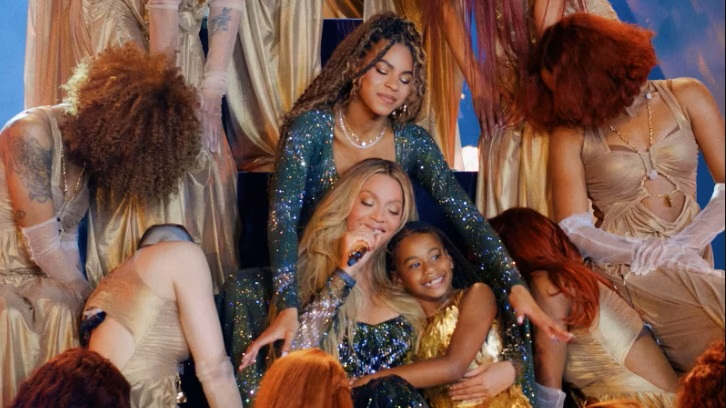DeErricka Green | Staff Writer
Hollywood has fallen into a pattern, and old-school movies are being remade left and right, much to the chagrin of some viewers. In the weeks since the release of the highly anticipated remake of the film “Sparkle,” as well as the hype surrounding the upcoming release of the made-over “Steel Magnolias,” featuring an all-black cast including Queen Latifah, Phylicia Rashad, and Jill Scott, the conversation of whether “classic” films should be revamped lingers on.
Now, at the heart of this conversation are two areas of debate.
One dispute asks: should “classic” movies be touched at all by film directors today? Granted there have been some, arguably, successful film adaptations, generally if you ask Americans for a list of films that should never be made-over, a common answer will be given, including movies such as “Casablanca,” “The Godfather,” and “Gone With the Wind.”
Likewise, if you were to ask African-Americans for this same list, there are just some black films that should not be touched; “Friday,” “Boyz N The Hood,” and “Coming to America” all come to mind (though there have been rumors floating around IMDB and Rotten Tomatoes that Martin Lawrence is planning an adaptation of “Coming to America,” telling the story of a black man who learns that he is the heir to an African kingdom, slated to be called “Back to Africa”; that’s a whole other story, entirely).
Everyone has differing opinions on the matter. For some, why should Hollywood mess with a good thing or fix what hasn’t been broken? Still others argue that many of these “classic” movies could benefit from a modern interpretation or from telling the story with a different perspective.
This brings into play, another question: does race matter?
While there is heavy anticipation for the release of “Steel Magnolias,” there are a few angry bloggers that say Sally Field is the only M’Lynn Eatenton and Julia Roberts the only Truvy Jones. Is it okay to take a “classic” movie, like that of “Steel Magnolias,” and feature an all-black cast?
“Steel Magnolias” tells the story of a group of Louisiana women, and the relationship that they form with each other, likened to the force of metal and the allure of flowers. It also touches on issues of marriage, childbirth, women’s health, as well as death, all of which can relate to the lives of women in all walks of life, including African-American women. So, in theory, there is no reason why the cast of this movie should not focus on black women. This version of the film will be featured on Lifetime, and directed by Kenny Leon, who also produced the 2008 remake of “A Raisin in the Sun”.
But, while it seems as though race should not be much of a factor in this matter, as Americans, we know that race is usually an underlying issue.
Some critics of cross-racial remakes are those such as John Lahr, New Yorker writer, who feels that original productions should not be given the “minority treatment.” In response to the April 2012 multiracial adaptation of “A Streetcar Named Desire, ”featuring Blair Underwood and Nicole Ari Parker, Lahr wrote in an article entitled “The Best Theatre of the Year, ”that he wished for “no more infernal all-black productions of Tennessee Williams plays unless we can have their equal in folly: all-white productions of August Wilson.”
This has been seen before. It’s the age-old, “if they can do it, why can’t we?”, argument majority members have used to combat against aspects of minority culture such as Black History Month, Hispanic Heritage Month, affirmative action or language. It’s an argument that has plagued Western culture for decades, and shows no sign of stopping anytime soon.
However indiscreet Lahr’s comment may have been, does he have a point? If people of color and other minorities get to remake classic films from their perspective, should members of the majority share the same privilege?
If we were to explore Lahr’s idea of having “all-white productions” of black productions, which remakes would viewers want to see? Would they be successful? And which other classic productions could benefit from the chocolate touch?
“The Wizard of Oz”: It’s already been done, quite successfully. Anytime you get Diana Ross and Michael Jackson together on screen, there’s bound to be magic made.
“Forrest Gump”: Terrence Howard has already proved he’s a master at faking a smooth Southern accent, which is why he’d be perfect in a remake of this movie. Not to mention, a version of this film that focuses on minority perspective of the events recounted in the original, would be an interesting spin.
“Friday”: Everyone’s agreed that this movie should never be touched. It’s bad enough two lackluster sequels are already in existence, with the rumor of a third floating around. With an all-white cast, a remake of this would produce something like a “Hangover”, but still not as side-splitting.
“School Daze”: This also would be an interesting spin, especially with the recent allegations of hazing within the UNC Interfraternity Council. It might lack the cultural impact of the original; unless of course Spike Lee signed on to assist with the revamp.
“Rocky Horror Picture Show”: This role was just made for RuPaul. And anyone that says different- be prepared to “lip sync for your life!”
Sure, it’s a funny idea once you start to think about it, but realistically, everyone wants their own spin on Western culture. While all-black remakes may seem inclusive often times they are necessary and serve a purpose in showcasing a voice that has not always been heard.
This is why these remakes happen—with all groups of people, not just African Americans.
And though the idea that “if they can do it, why can’t we?” in theory should stand, the reality is that it usually does not. It is seen that majority members usually can and already have done what minorities fight to accomplish by producing some remakes; there are also events in minority culture of which outsiders have no experience, preventing the production of other remakes. This is a result of our history as a nation and its consequences.
Either way, expect to see more stories like these getting the so-called “minority treatment”. With the success of the aforementioned productions, and expected praise for “Steel Magnolias”, this trend may prove to be one of the ways in which black actors can find diversified roles that will further spotlight their talent.




